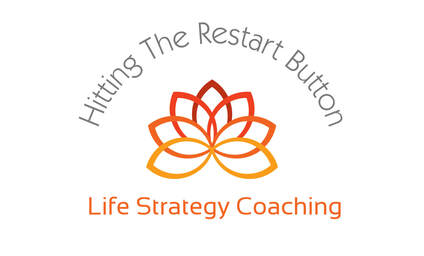|
Change, by definition is the act or instance of making or becoming different. As humans, our brains are not wired for change. In fact, one could go as far as to say that the brain actually hates change. In fact, when we experiences change, it challenges our sense of stability. Our brain's job is to keep us safe, and that usually means keeping things the same and familiar. If the brain decides the change is, in fact, threatening, then it will resist or avoid the change as much as possible. This resistance is what makes the transition through change often a difficult and challenging experience for us. Here are a few techniques that can prove helpful during times of change in our lives or our environment. 1. Acknowledge That Things Are Changing Realize that even good change can cause stress. Try to figure out what's going on in your mind when you're feeling sad, hopeless or full of fear. Having conscious awareness is the first step to breaking patterns of negative and low vibrational thinking. According to Psychology Today "Denial is a powerful force, and it protects us in many ways. However, stepping outside of it and saying to yourself, "Things are changing, and it is okay" can be less stressful than putting it off." As a result of acknowledging the shifts happening in your reality, you can better incorporate them and create your new normal. 2. Reframe The Way You Think When life is in flux or transition, emotions can run high and feelings of overwhelm are common. Once you acknowledge the change(s), the next step is to reframe all that feels "bad" or "negative" into some kind of positive. Try to write down the positives that have come from this change or the positive impact it will have on your future. 3. Strive To maintain Some Normalcy Change in anything in our lives can be unsettling and cause stress no matter how big or small. Whether it be a major life event such as a divorce, loss of a loved one, new job, a move, children leaving the nest, or a small shift like modifying eating, sleeping or exercise habits, keeping up your regular schedule will reinforce the comfort of normalcy and stability. 4. Seek Support Today there is no shortage of professionals and support groups to provide assistance with working through life transitions and changes. Getting your questions answered, creating strategies, and having an ear to listen are all integral parts of successfully working through change. With major life events such as the loss of a loved one, engaging a grief counselor or a support group is often a necessary step to help you process the loss and slowly work your way into your changed circumstance. 5. Practice Gratitude During times of change, feeling overwhelmed and stressed can lead to feelings of worry, fear and anger. These low frequency energies work against maintaining a positive mindset, which helps with a successful transition through whatever change you are experiencing. The higher your energy frequency or vibration, the lighter you feel in your physical, emotional and mental bodies. You experience greater personal power, clarity, peace, love and joy. This makes it easier to deal with emotional challenges. One of the quickest ways to achieve a high vibration is to practice gratitude. When you are thankful, it is usually because you have received something or something has been given to you. As a result, experiencing gratitude, fills you with a joy and excitement as well as a sense of knowing that you have the gift in your present reality. Therefore, being thankful for all the things you already have and those you wish to have, allows you to manifest that reality and move through change easier. 6. Eat Healthy Food is what nourishes our bodies and all of your bodily systems. While it is important to eat healthy and with regularity all the time, during times of change, this is even more important. Eating healthy keeps your immune system strong, which can get run down when you are stressed. Additionally, according to Harvard School of Public Health, nutritious eating "provides the extra energy needed to cope with stressful events. Early research suggests that certain foods like polyunsaturated fats including omega-3 fats and vegetables may help to regulate cortisol levels." Cortisol is the hormone which gets released when we are stressed, better known as the fight or flight mode. A well scheduled intake of nutritious foods will help to minimize its release, maintaining a calm state of being. 7. Be Kind to Yourself Since you now know that change is not something that comes natural or easily to you as a human, you may want to consider being more patient and kind with yourself. So often in my practice I see individuals put tremendous pressure on themselves to adapt quickly when their world is in flux. Even worse, it is not uncommon to be self-critical and engage in negative self-talk which results in feelings of worthlessness, failure, and guilt when unrealistic expectations are not met. Instead, it is much more productive to praise yourself for the small wins and just plain hanging in there. Getting through each day in a changing situation deserves self praise and non-judgment. This approach will have a far greater impact in moving you through the change you are experiencing, reduce stress and bring you more in alignment. Love & Light, Elisa
0 Comments
Leave a Reply. |
ELISA
|
|
Elisa Valentino
HOLISTIC BEHAVIORAL PRACTITIONER DIVORCE & LIFE TRANSITION COACH SPIRITUAL LIGHTWORKER PUBLIC SPEAKER PODCAST HOST |
©2024 Hitting The Restart Button



 RSS Feed
RSS Feed
